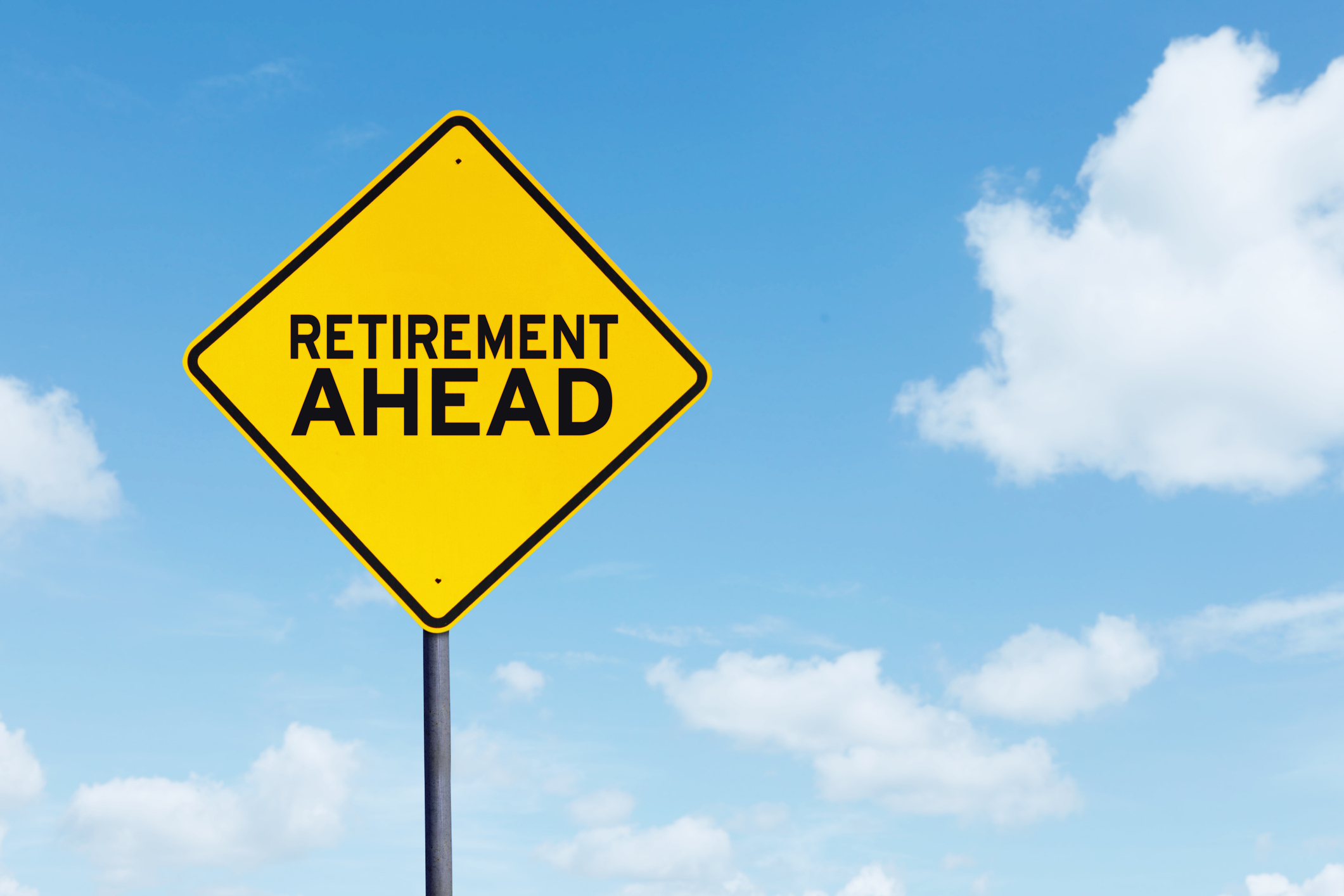Four Things You Need to Know Before Applying for Social Security
Don't unnecessarily delay or reduce your Social Security benefits because you don't know all the rules and requirements.


Profit and prosper with the best of Kiplinger's advice on investing, taxes, retirement, personal finance and much more. Delivered daily. Enter your email in the box and click Sign Me Up.
You are now subscribed
Your newsletter sign-up was successful
Want to add more newsletters?

Delivered daily
Kiplinger Today
Profit and prosper with the best of Kiplinger's advice on investing, taxes, retirement, personal finance and much more delivered daily. Smart money moves start here.

Sent five days a week
Kiplinger A Step Ahead
Get practical help to make better financial decisions in your everyday life, from spending to savings on top deals.

Delivered daily
Kiplinger Closing Bell
Get today's biggest financial and investing headlines delivered to your inbox every day the U.S. stock market is open.

Sent twice a week
Kiplinger Adviser Intel
Financial pros across the country share best practices and fresh tactics to preserve and grow your wealth.

Delivered weekly
Kiplinger Tax Tips
Trim your federal and state tax bills with practical tax-planning and tax-cutting strategies.

Sent twice a week
Kiplinger Retirement Tips
Your twice-a-week guide to planning and enjoying a financially secure and richly rewarding retirement

Sent bimonthly.
Kiplinger Adviser Angle
Insights for advisers, wealth managers and other financial professionals.

Sent twice a week
Kiplinger Investing Weekly
Your twice-a-week roundup of promising stocks, funds, companies and industries you should consider, ones you should avoid, and why.

Sent weekly for six weeks
Kiplinger Invest for Retirement
Your step-by-step six-part series on how to invest for retirement, from devising a successful strategy to exactly which investments to choose.
Applying for Social Security benefits is the easy part. You can apply online, by telephone or at your local Social Security office. The hard part is deciding when to apply for your Social Security retirement benefits and rounding up all the documents you'll need when you do.
To be eligible to apply for Social Security benefits you must be at least 61 years and 9 months old and have worked at least ten years total at jobs where you earn Social Security credits. How much you receive in benefits is determined by your earnings history and the age at which you begin receiving benefits.
Here are four things every 2026 Social Security applicant needs to know before filing a claim:
From just $107.88 $24.99 for Kiplinger Personal Finance
Become a smarter, better informed investor. Subscribe from just $107.88 $24.99, plus get up to 4 Special Issues

Sign up for Kiplinger’s Free Newsletters
Profit and prosper with the best of expert advice on investing, taxes, retirement, personal finance and more - straight to your e-mail.
Profit and prosper with the best of expert advice - straight to your e-mail.
1. When to apply (It matters!)
Your claiming age goes a long way in determining your monthly benefit. For most workers today, the full retirement age (FRA) is 67, but it can be as young as 66 for those born between 1943 and 1954. Regardless of your FRA, you're able to sign up for Social Security as early as 62. However, the government penalizes you for applying before your FRA by reducing your benefits.
The decision to apply early for benefits reduces your retirement benefit by:
- 5/9 of 1% per month for the first 36 months of early claiming
- 5/12 of 1% per month for any additional months of early claiming for month 37 and beyond
When you claim at 62, you incur the maximum penalty of 25% if you have an FRA of 66, or 30% if your FRA is 67. For example, if you were born after 1960, your full retirement age is 67. If you start your benefits at age 62, a $1,000 monthly benefit would be reduced to $700. And if you are married, your spouse's monthly benefit would drop from $500 to $350. See the table below to see the impact of taking early benefits on those born in 1943 and after.
Click on your year of birth in the table below to see the month-by-month reduction of benefits and estimated benefits amounts when you claim before your FRA.
Year of birth | Full retirement age (FRA) | Months between age 62 and full retirement age | Wage Earner, A $1000 retirement benefit would be reduced to | Spousal, A $500 spouse's benefit would be reduced to |
66 | 48 | $750 (reduced by 25%) | $350 (reduced by 30.0%) | |
66 and 2 months | 50 | $741 (reduced by 25.83%) | $345 (reduced by 30.83%) | |
66 and 4 months | 52 | $733 (reduced by 26.67%) | $341 (reduced by 31.67%) | |
66 and 6 months | 54 | $725 (reduced by 27.50%) | $337 (reduced by 32.50%) | |
66 and 8 months | 56 | $716 (reduced by 28.33%) | $333 (reduced by 33.33%) | |
66 and 10 months | 58 | $708 (reduced by 29.17%) | $329 (reduced by 34.17%) | |
67 | 60 | $700 (reduced by 30%) | $325 (reduced by 35.00%) |
One way to increase your monthly benefits is to delay collecting Social Security after you reach your FRA. How much of an increase you see as a result of delaying is determined by how old you are and how many months you delay the start of your retirement benefits.
Delayed retirement credits (DRCs) are calculated for each month you wait beyond your full retirement age. The benefit increase stops when you reach age 70. You'll get an extra 2/3 of 1% for each month you delay after your birthday month, adding up to 8% for each full year you wait until age 70.
Click on your year of birth in the table below to see a month-by-month increase of benefits and estimated benefit amounts when you claim after your FRA.
Year of Birth(see above for applicable FRA) | Monthly/12-Month rate of increase | 12-Month rate of increase | Claim benefits at age 67 | Claim benefits at age 70 |
|---|---|---|---|---|
2/3 of 1% | 8.0% | you'll get 108% (12 month delay) | you'll get 132.0% (48 month delay) | |
2/3 of 1% | 8.0% | you'll get 106.7% (10 month delay) | you'll get 130.7% (46 month delay) | |
2/3 of 1% | 8.0% | you'll get 105.3% (8 month delay) | you'll get 129.3% (44 month delay) | |
2/3 of 1% | 8.0% | you'll get 104% (6 month delay) | you'll get 128.0% (42 month delay) | |
2/3 of 1% | 8.0% | you'll get 102.7% (4 month delay) | you'll get 126.7% (40 month delay) | |
2/3 of 1% | 8.0% | you'll get 101.3% (2 month delay) | you'll get 125.3% (38 month delay) | |
2/3 of 1% | 8.0% | you'll get 100% | you'll get 124% (36 month delay) |

2. How much you'll get monthly from Social Security
You can estimate your Social Security benefit by creating a my Social Security account, calculate your benefits using the Social Security calculator or use the six-step method in How to Estimate Your Social Security Benefits in Six Steps. This article will not walk you through the estimation process, but demystifies the factors Social Security uses to calculate your benefits.
Understanding how much your monthly benefits will be can help you decide if can delay collecting benefits by using your retirement savings to build an income bridge until you turn 70.
When to expect your first check to arrive. Your first check won't arrive until the month after the one you pick in your application. If needed, you can time your first benefit payment to avoid a gap in income. You can apply any time up to four months before the month you pick.
3. What you need to apply online or in person
Preparation will make the process faster and less stressful. Before you make an appointment with a local SSA office or start your online application, go through your records and gather the necessary information. The application requires some current and historical information. Going over the required documentation will give you the time to gather any missing information from the IRS or previous employers.
You can use the list below to get started and find more details by reviewing Social Security's Checklist for Online Medicare, Retirement, & Spouses Applications.
- Basic information about yourself: Social Security number, Original birth certificate or proof of U.S. citizenship or resident alien status
- Your earnings history: Verification of your record of earnings
- Employer details for current year and prior 2 years:
- Direct deposit for benefit payment: Routing and account number for your bank account
- Employer details for current year and prior 2 years: Employer name, start and end dates of employment
- Self-Employment Details for Current Year and Prior 2 Years: Business type, total net income
- Current and past marriage: Your spouse/former spouse's Social Security number and birth date, Date you got married/divorced and where you got married (city, state, country)
- U.S. Military Service: Type of duty and branch and service period dates. Military service papers if you served before 1968
- Names of your children: Some children may be eligible for benefits based on your work history. Unmarried children under the age of 18 or disabled children under the age of 22 may qualify for some type of benefit based on your work history.

4. Social Security's birthday rules
Your birth date determines when you are eligible to apply for benefits. However, the Social Security Administration has some specific rules for those born on the 1st day of a month, January 1 and February 29. If you fall into any of these three categories, you will use a different date than your birth date to claim your benefits;
- First of the month: If you were born on the first of the month, Social Security will figure your benefit (and your full retirement age) as if your birthday was in the previous month. This is the case if you were born on the first of the month from February to December, but not January.
- First of January: If you were born on January 1, your Birth Month is December, and your Birth Year is the year prior to your actual birth.
- February 29: Even though your birthday only comes once every four years, your benefits won’t be affected. So even though your actual date of birth doesn’t come every year, the month does, and the Social Security Administration counts February as your Birth Month.
Why you should have a "my Social Security" account
Setting up an online account with Social Security gives you access to important information and streamlines the application process. A my Social Security account is free, secure and can help you with many tasks. You can estimate your benefits, track your earnings history, and request a replacement Social Security card.
By claiming your account, you can help prevent fraud and identity theft of your Social Security information and benefits. If criminals obtain your Social Security number, they may try to open a my Social Security account in your name and redirect your benefits to an account they control. But if you open your my Social Security account now, you can help prevent this scenario, since any individual can only have one my Social Security account open per Social Security number.
These accounts are a valuable resource for Americans living abroad. There are no Social Security offices outside the U.S. However, there are American embassies and consulates with trained personnel to assist you in seeking Social Security services. Through your account, you can print benefit verification letters often needed to demonstrate a steady source of income when applying for or renewing visas. You can also retrieve and print your SSA-1099/1042S tax statement to prepare your tax return, as Social Security is unable to mail replacement statements to a foreign address.
Related Content
Profit and prosper with the best of Kiplinger's advice on investing, taxes, retirement, personal finance and much more. Delivered daily. Enter your email in the box and click Sign Me Up.

Donna joined Kiplinger as a personal finance writer in 2023. She spent more than a decade as the contributing editor of J.K.Lasser's Your Income Tax Guide and edited state specific legal treatises at ALM Media. She has shared her expertise as a guest on Bloomberg, CNN, Fox, NPR, CNBC and many other media outlets around the nation. She is a graduate of Brooklyn Law School and the University at Buffalo.
-
 How Much It Costs to Host a Super Bowl Party in 2026
How Much It Costs to Host a Super Bowl Party in 2026Hosting a Super Bowl party in 2026 could cost you. Here's a breakdown of food, drink and entertainment costs — plus ways to save.
-
 3 Reasons to Use a 5-Year CD As You Approach Retirement
3 Reasons to Use a 5-Year CD As You Approach RetirementA five-year CD can help you reach other milestones as you approach retirement.
-
 Your Adult Kids Are Doing Fine. Is It Time To Spend Some of Their Inheritance?
Your Adult Kids Are Doing Fine. Is It Time To Spend Some of Their Inheritance?If your kids are successful, do they need an inheritance? Ask yourself these four questions before passing down another dollar.
-
 Your Adult Kids Are Doing Fine. Is It Time To Spend Some of Their Inheritance?
Your Adult Kids Are Doing Fine. Is It Time To Spend Some of Their Inheritance?If your kids are successful, do they need an inheritance? Ask yourself these four questions before passing down another dollar.
-
 The 4 Estate Planning Documents Every High-Net-Worth Family Needs (Not Just a Will)
The 4 Estate Planning Documents Every High-Net-Worth Family Needs (Not Just a Will)The key to successful estate planning for HNW families isn't just drafting these four documents, but ensuring they're current and immediately accessible.
-
 Love and Legacy: What Couples Rarely Talk About (But Should)
Love and Legacy: What Couples Rarely Talk About (But Should)Couples who talk openly about finances, including estate planning, are more likely to head into retirement joyfully. How can you get the conversation going?
-
 We're 62 With $1.4 Million. I Want to Sell Our Beach House to Retire Now, But My Wife Wants to Keep It and Work Until 70.
We're 62 With $1.4 Million. I Want to Sell Our Beach House to Retire Now, But My Wife Wants to Keep It and Work Until 70.I want to sell the $610K vacation home and retire now, but my wife envisions a beach retirement in 8 years. We asked financial advisers to weigh in.
-
 How to Add a Pet Trust to Your Estate Plan: Don't Leave Your Best Friend to Chance
How to Add a Pet Trust to Your Estate Plan: Don't Leave Your Best Friend to ChanceAdding a pet trust to your estate plan can ensure your pets are properly looked after when you're no longer able to care for them. This is how to go about it.
-
 Want to Avoid Leaving Chaos in Your Wake? Don't Leave Behind an Outdated Estate Plan
Want to Avoid Leaving Chaos in Your Wake? Don't Leave Behind an Outdated Estate PlanAn outdated or incomplete estate plan could cause confusion for those handling your affairs at a difficult time. This guide highlights what to update and when.
-
 I'm a Financial Adviser: This Is Why I Became an Advocate for Fee-Only Financial Advice
I'm a Financial Adviser: This Is Why I Became an Advocate for Fee-Only Financial AdviceCan financial advisers who earn commissions on product sales give clients the best advice? For one professional, changing track was the clear choice.
-
 Quiz: Are You Ready for the 2026 401(k) Catch-Up Shakeup?
Quiz: Are You Ready for the 2026 401(k) Catch-Up Shakeup?Quiz If you are 50 or older and a high earner, these new catch-up rules fundamentally change how your "extra" retirement savings are taxed and reported.